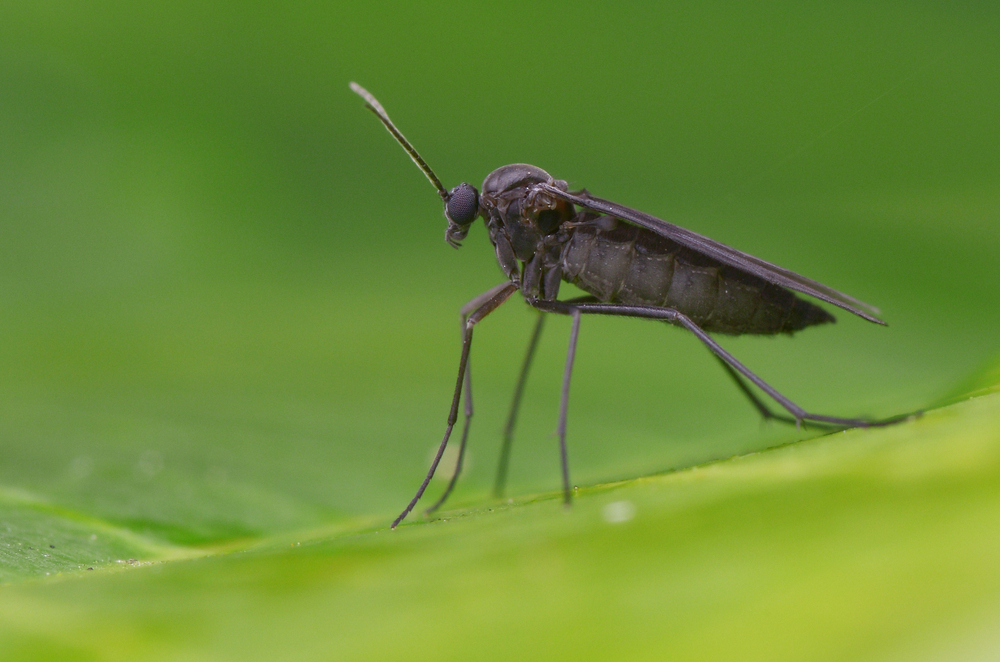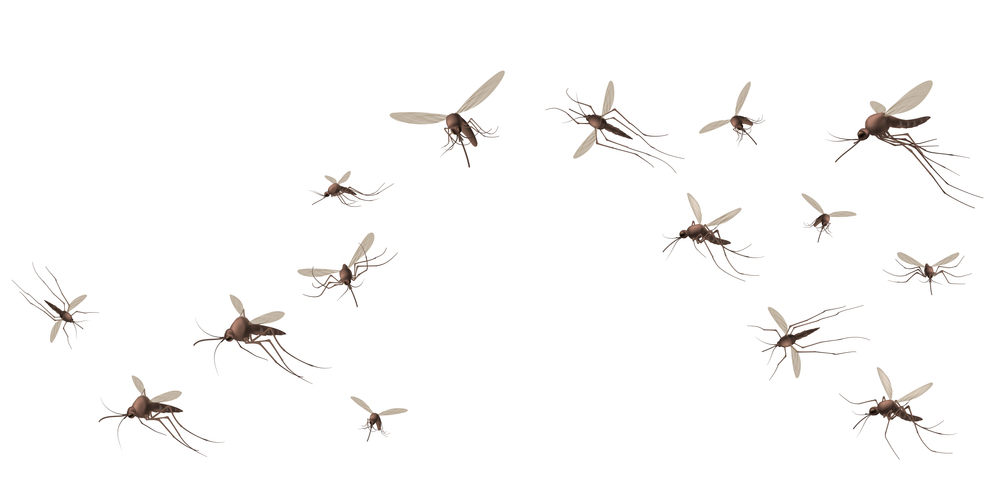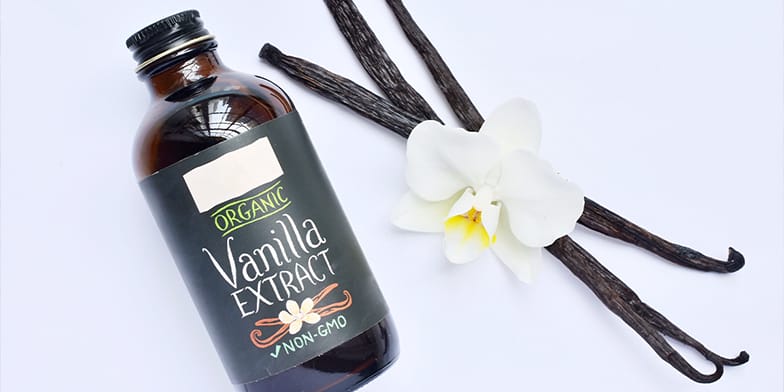
Gnats are tiny insects that thrive on fruity smells, and if you’ve not had to deal with them before you might be surprised at how troublesome they can be! Fortunately, there are scents you can use that will get rid of this common household bug.
There are several strong smells that humans tend to enjoy that gnats absolutely hate. Some of these smells include mint, vanilla, lavender, lemon, and citronella. Inversely, gnats are attracted by fruity smells, and the scent of rotting food.
If you’ve landed here looking for a solution to your gnat problem, I have good news. Gnats are not just repelled by smell, and there are many steps you can take to get rid of them. There are even ways to trap a lot of them all at once!
Let’s dive right in, and find out what exactly is attracting gnats to your home, and how to keep the annoying little bugs at bay.
What Are Gnats And What Attracts Them?
The gnat is a small and harmless household insect. They don’t bite, and they spend their days flying around looking for food in perishable items that are rotting. They will be attracted to ripe, fruity-smelling items. They’re usually also present in and around houses when there’s a lot of heat and humidity inside. As such, you’ll see them a lot in the summer.
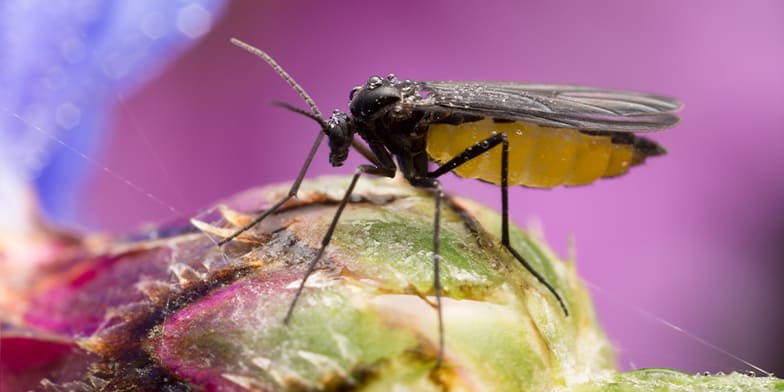
What we call a gnat is actually a range of different species of insect under one umbrella. Insects, like fungus gnats, fruit flies, sand flies, and phorid flies are all part of the gnat group. They all have a lot in common, including both a small lifespan of a couple of weeks and a propensity to live both indoors and outdoors. You’ll find them in common outdoor spaces like vegetable patches and fruit stores.
The oddest thing that a gnat can be attracted to is human sweat. If a person is near a gnat swarm, or somewhere with a lot of bugs, the gnats will smell the sweat and come over to check them out. This can sometimes be quite alarming for the sweaty individual being swarmed, but the gnats mean no harm.
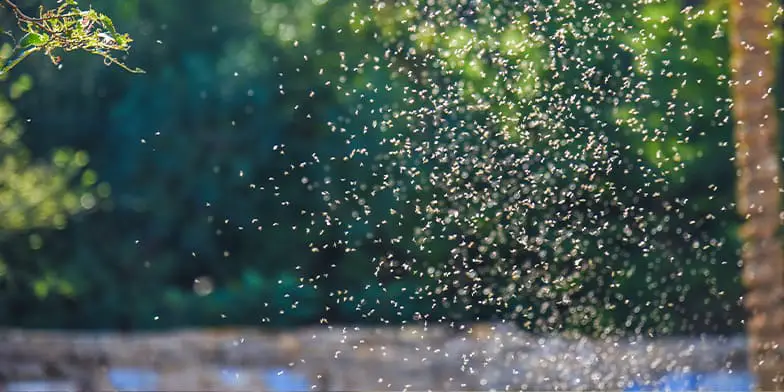
What Will Keep Gnats Away?
There are a variety of ways you can prevent gnats from entering your home, yard, or outdoor spaces. Things like sticky traps and gnat repellent sprays can come in both synthetic and natural varieties, and will help to keep them away from any area in which they are applied. If you’re outside, fire has been proven to be a useful gnat repellent (but it’s also fire, so be careful). Lastly, if you’re having a lot of trouble, professional exterminators are the most effective way to remove a gnat infestation in your home.
If you’re wondering about some of the fastest ways to get rid of gnats, here’s a short list of things you can do to kill or remove already existing gnats in your space. The list contains short descriptions of each method, so you can look up the details if you’re not familiar with them.
- Dehumidify your house so that there isn’t too much moisture during hot weather.
- Check your trash regularly, and throw out perishable items as soon as possible.
- Many plants with non-fruity smells are good repellents for gnats both in the household and outside as well.
- Due to their pleasant smells and effective properties against several types of bugs, essential oils are a convenient way to get rid of gnats.
- Using sticky traps is the fastest way to get rid of gnats, and you can make them at home or buy them at the closest store.
The Smells Gnats Can’t Stand
Although gnats are the biggest fans of certain smells, others can take them out completely. Although it may take a little time to work, these smells will act as an effective gnat prevention force field, driving the insects away from the source.
As mentioned before, strong, non-fruity scents like peppermint and vanilla will work best. There are different ways you can both create and deploy these scents. Here you’ll be able to find more complete guidelines on the different types I recommend.
Peppermint
Peppermint is a smell everybody knows to use as a repellent. It can repel most kinds of insect and sometimes even much larger animals like raccoons and deer. The best way to use this smell is to use essential oils. You can mix a small amount of the oil into water, and use it as a spray.
You can also use peppermint leaves. Although the smell is a lot weaker with the leaves, you can plant them around any area that you want safe from gnat harassment.

Vanilla
Gnats absolutely hate the scent of vanilla. It can be an essence, lotion, candle, or even spice. You can use this scent to keep the gnats off your face and body too. They won’t go near it.
Gnats can be killed with vanilla lotion and essential oils as well. You can use a diluted spray of vanilla essence or essential oil with water to keep the gnats away, and also be left with a nice fragrance once you’re done!
Lavender
Lavender is a sweet, plant-based scent. Having said that, it might seem like it would invite more gnats in than drive them out, right? That isn’t the case. Any strong indication of lavender will drive the gnats crazy. You can use this scent as a spray or oil as well.
One useful method is to invest in a diffuser. These machines will act as an automatic sprayer to slowly run essential oils through every part of your house. You can also plant lavender, or keep the flowers in spots where you expect a lot of gnats.

Citronella
Citronella is a mix of plant-based herbs that if usually recommended as a repellent for mosquitoes. It’s a very good solution to naturally drive out both gnats and mosquitoes from your space. You can find them in candles and sometimes sticks.
Citronella candles can work even better than essential oils in driving gnats away. You can use a diffuser, or put a couple of drops on a cotton ball to keep around the house or indoor space. And for your body, you can mix it into a lotion to apply to your skin.
Lemon Thyme Or Lemon
Lemon thyme is a herb that, unsurprisingly, has a very similar taste and smell to the lemon fruit. You can use the leaves of a lemon thyme plant (which also contain citronella) to prevent gnats from coming into different areas, like the kitchen. This plant is just a great one to have around the garden, too. It can be used as both a repellant and as a cooking herb.
As Traps: Banana Peels and Apple Cider Vinegar
Now that we’ve established that fruit-like smells attract gnats, you can use this to your advantage by using the smell of a banana peel as a trap. Keep your banana peel in a small plastic box, and make some holes in the lid. At the bottom of the box pour some sticky soap so that when the gnats enter, they get stuck at the bottom.
Another useful home-made trap for gnats uses apple cider vinegar, which they also can’t resist. Use your container in the same way you would with the banana peel trap, and put some of the vinegar in the bottom with your dish soap. In the same way, the gnats will be drawn into the box and meet their doom.
Wrap up
Gnats are some of the easiest bugs to get rid of, and there are plenty of ways you can do it. Now you know what smells they hate, you can prepare your defenses and arm your traps effectively – and soon you’ll be living the gnat-free dream.
Just one last thing. Before you take the offensive with any one of these great gnat-repelling scents, just remember to make sure that everyone else you share your home with is okay with the plan.
Sometimes a gnat problem is preferable to having an angry roommate who can’t stand the smell of Lavender you’ve applied all over the place.
Driven by a passion for those tiny creatures that rule our world, we at Bug Domain strive to be your go-to resource for information on insects.


